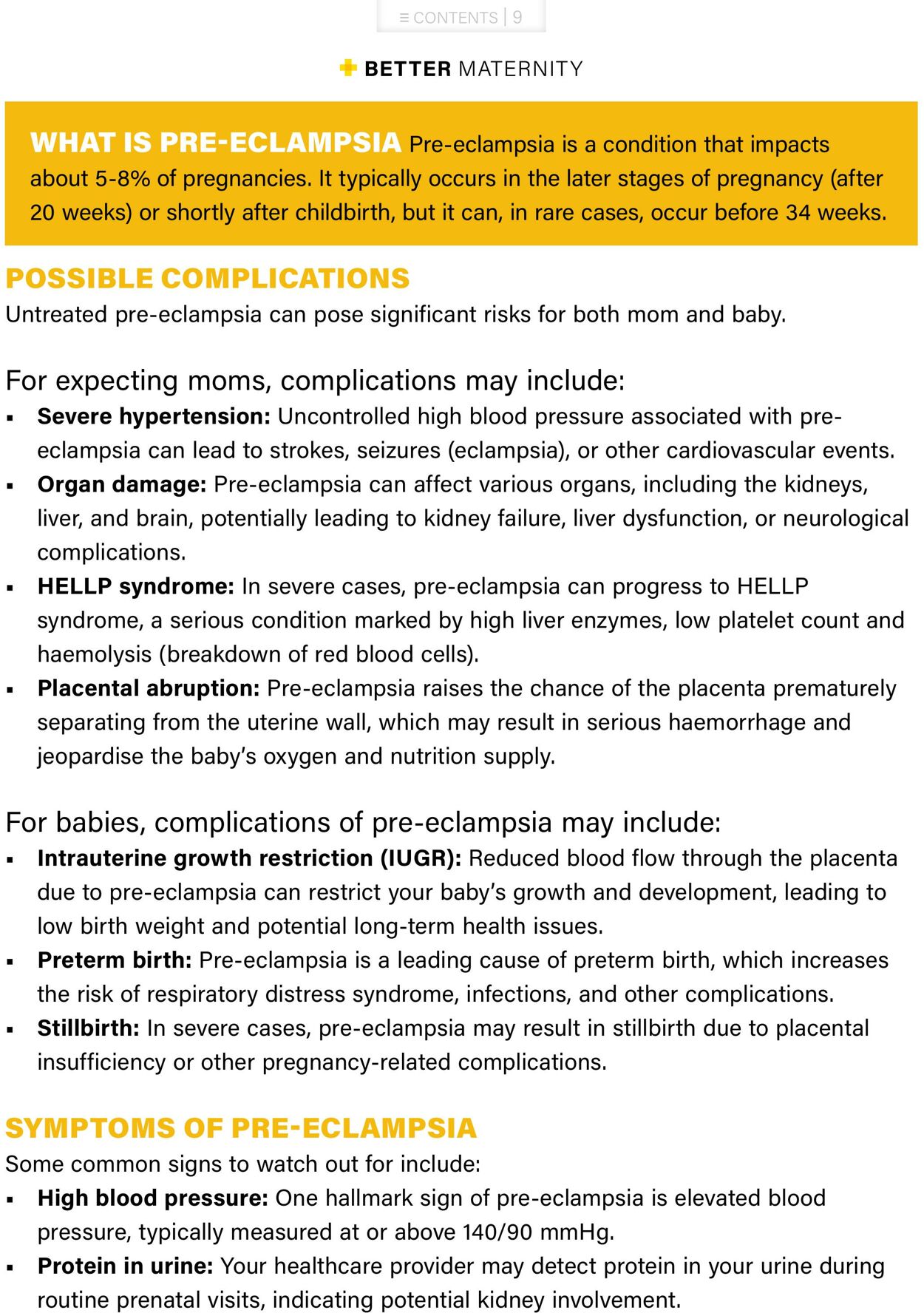













Products in this catalogue
“> BETTER MATERNITY WHAT IS PRE-ECLAMPSIA POSSIBLE COMPLICATIONS Untreated pre-eclampsia can pose significant risks for both mom and baby. For expecting moms, complications may include: » Severe hypertension: Uncontrolled high blood pressure associated with pre- eclampsia can lead to strokes, seizures (eclampsia), or other cardiovascular events. » Organ damage: Pre-eclampsia can affect various organs, including the kidneys, liver, and brain, potentially leading to kidney failure, liver dysfunction, or neurological complications. » HELLP syndrome: In severe cases, pre-eclampsia can progress to HELLP syndrome, a serious condition marked by high liver enzymes, low platelet count and haemolysis (breakdown of red blood cells). « Placental abruption: Pre-eclampsia raises the chance of the placenta prematurely separating from the uterine wall, which may result in serious haemorrhage and jeopardise the baby’s oxygen and nutrition supply. For babies, complications of pre-eclampsia may include: » Intrauterine growth restriction (IUGR): Reduced blood flow through the placenta due to pre-eclampsia can restrict your baby’s growth and development, leading to low birth weight and potential long-term health issues. » Preterm birth: Pre-eclampsia is a leading cause of preterm birth, which increases the risk of respiratory distress syndrome, infections, and other complications. « Stillbirth: In severe cases, pre-eclampsia may result in stillbirth due to placental insufficiency or other pregnancy-related complications. SYMPTOMS OF PRE-ECLAMPSIA Some common signs to watch out for include: » High blood pressure: One hallmark sign of pre-eclampsia is elevated blood pressure, typically measured at or above 140/90 mmHg. « Protein in urine: Your healthcare provider may detect protein in your urine during routine prenatal visits, indicating potential kidney involvement.
| Name | Details |
|---|